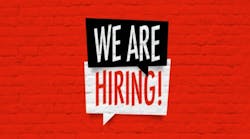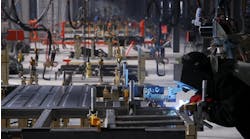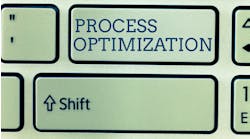You're hired! How to attract job candidates in the manufacturing sector
By Natalie Segro, manager of product training at Jobvite
Manufacturers face unique hiring challenges when compared to other industries, which means these companies have to work harder to compete for skilled candidates. These obstacles have become more difficult to overcome in today’s increasingly tight labor market.
Fortunately, a newly-launched Job Seeker Nation Report reveals how recruiters across the manufacturing industry can better understand the realities of today’s job seekers. As a result, talent-acquisition professionals within the manufacturing industry can equip themselves with the right skills, tools, and information to engage, attract, and retain high-quality candidates.
Company culture is still important
As found in the report, 54% of manufacturing workers report that their stress level has increased since the onset of the pandemic. As job seekers and employees work to manage stress, employers should remember to assist in any way possible by offering additional paid time, remote-work flexibility, and mental-health benefits. For example, nearly 55% of manufacturing workers say their employer offers mental-health benefits and resources to employees. Only 41% of those respondents have taken advantage of these benefits during their time with the company.
Given that reported usage of these offerings is less than half, there is an opportunity for manufacturing employers to better promote these benefits. The overall return of activating these offerings is two-fold as increased usage reinforces the importance of mental health and demonstrates dedication to a positive workplace environment. This is especially important as more than 85% of workers consider company culture important in their decision to apply for a job.
Culture aspects, including sought-after benefits such as flexible work options, can be highlighted through robust recruitment-marketing efforts on the company’s social media account or career site.
Prioritize diversity
According to the survey, 40% of manufacturing job seekers have inquired about an employer’s goals and efforts around improving diversity in the workplace during a job interview. This shows that candidates care about the effort that employers make toward ensuring a diverse and inclusive company culture.
The report also found that 29% of manufacturing candidates would turn down a job offer if the company lacked diversity in its workforce or had no clear goals for improving it. Forty-one percent said intentions to meet diversity-hiring goals need to be shared on company’s social media, blog and career site.
These expectations show that candidates are prioritizing the opportunity for respect and appreciation to be universal in their place of work—no matter their identity. Manufacturers that incorporate diversity and inclusion initiatives show more overall success as well as an improved employer brand.
It’s all about the candidate experience
Manufacturing job seekers have increased their expectations in job searches. Not only do they look for an employer with a strong brand that highlights diversity initiatives, employee benefits, and positive company culture, but they also desire a positive candidate experience, which has increasingly become a huge priority for job seekers.
Today, the top reason by far for a negative candidate experience in the manufacturing industry is a lack of response from the employer or recruiter at 81%—a dramatic increase from 2020 (47%). Other top reasons were a confusing application process and difficulty in scheduling an interview.
Communication preferences have also changed, with email declining by 12 percentage points in a single year and phone calls growing dramatically in preference. Text recruiting has become a top strategy among recruiters for on-the-go candidates. Manufacturing candidates are often not sitting in front of a desk or computer to apply, therefore texting is especially useful. And having effective automated messaging allows candidates to communicate with recruiters via text at any time of day.
Based on these findings, recruiters need to consider different communication strategies to ensure they are reaching manufacturing candidates through their preferred channels.
Tap into current employees
Manufacturing companies are facing a competitive job market, which means every candidate interaction counts. Finding the right fit for a role can feel impossible, but candidates that are referred to a job by a friend or colleague can be the key to success.
However, recruiters are seeing fewer employees post jobs to their personal networks at 65% (compared to 69% in 2020), which are key to securing high-quality talent. In fact, a 2020 Recruiter Nation Report revealed that employee referrals remain one of the top-rated sources for hiring.
What’s more, referral programs are seriously lacking within the manufacturing industry. According to the report, only 20% have participated in a company’s referral program, presenting an opportunity for employers to make it easier for employees to participate in referral programs. For example, one manufacturer of office products recently offered cash incentives to employees for successful referral hires after they complete 90 days of employment and saw great success. This can be further accomplished by equipping employees with technology that helps automate the referral process while optimizing workflows.
As they race to fill roles within the recovering job market, manufacturing recruiters must find new ways to hire at volume without letting quality candidates slip through the cracks. By identifying and acting on new ways to improve recruiting efforts, such as emphasizing company culture and taking advantage of employee referrals, talent-acquisition professionals can save significant time and money while reaching top talent.



